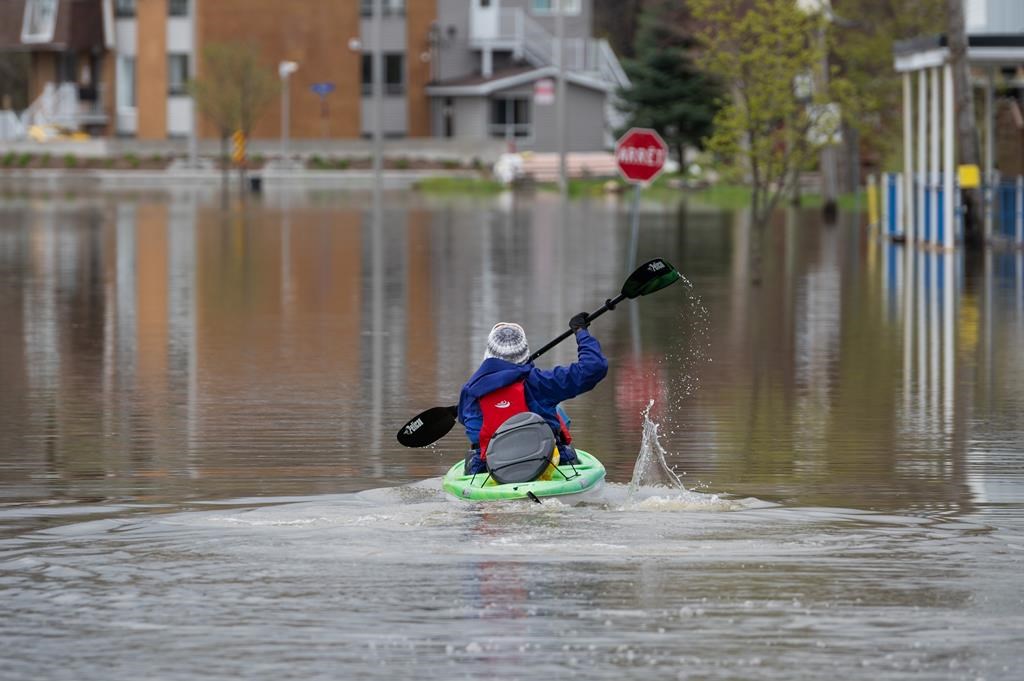Some municipal officials like Doug Hurley, mayor of Montreal’s L‘Île-Bizard–Sainte-Geneviève borough, saw the province’s draft flood zone regulations for the first time Wednesday.

He, among others, has questions.
“What stands out for me is the lack of consultation at the local level,” he stated. That is a definite problem.”
Dimitrios Jim Beis, borough mayor for Pierrefonds-Roxboro, who says he also only got details of the draft on Wednesday, agrees.
“Here’s another example of the government dropping something, when we don’t even know about it, to the press,” he told Global News. “We get the information from the press.”
The flood management plan, released Tuesday, will govern public flood prevention infrastructures and also widen the category for a flood zone. Around 55,000 additional homes could now end up in a flood-risk zone.
Quebec Environment Minister Benoît Charette told reporters Tuesday that the exact number will be known once most of the updated flood zone maps are available by fall 2025.
Still, Beis is concerned.

Get breaking National news
“If they add more sectors in our community, that could only lead to a lot of issues that we have to deal with locally,” he observed.
Furthermore, he argued, the plan in its current form just creates obstacles.
“The government is coming out with more red tape and hurdles that folks are going to have to jump through that potentially could lower the property value, could affect their insurance down the road,” he stressed.
Government officials are expected to hold public consultations throughout the summer with a goal to put the new regulations into effect by early 2025.
In a public statement the Communauté métropolitaine de Montréal (CMM), a group that represents 82 municipalities, said the draft regulations are a good start, but cautions that they could create anxiety.
“To ensure the accessibility and integrity of the consultations, we also ask the government to extend the process by 90 days beyond the summer period and to actively participate in discussions with citizens,” the statement reads in part.
Hurley also wonders about consultations in the summer when some people might be away, or less likely to engage.
“L‘Île-Bizard and Sainte-Geneviève have particular problems that are similar but some ways different,” he noted, stressing that the government needs to understand the unique needs in various communities.
Some elected officials like Gino Moretti, mayor for Saint-Anicet and co-chair of the Great Lakes and St. Lawrence Cities Initiative, are thrilled with the plan, however.
“I was very pleased,” he said, “because it’s a start to do something and not just talk about it.”
He admits that there could be an impact on home values but stressed that not all the effects may be negative. For example, the CMM expressed concern about a drop in property values of homes if dikes are built next to them.
“Those dikes could also bring values to your home in years to come,” he reasoned. “If you look at the Netherlands, for example, they are the masters of dikes and it’s working for them.”
Beis said he isn’t optimistic about the plan’s implementation but wants to take part in the public consultations.
“Not only will I take part in it,” he stressed. “I will also hold a consultation or information session here with the residents that are affected in these areas.”
He wants his residents to have the proper information so that his borough can send a coordinated message to the government during the province’s consultations.








Comments